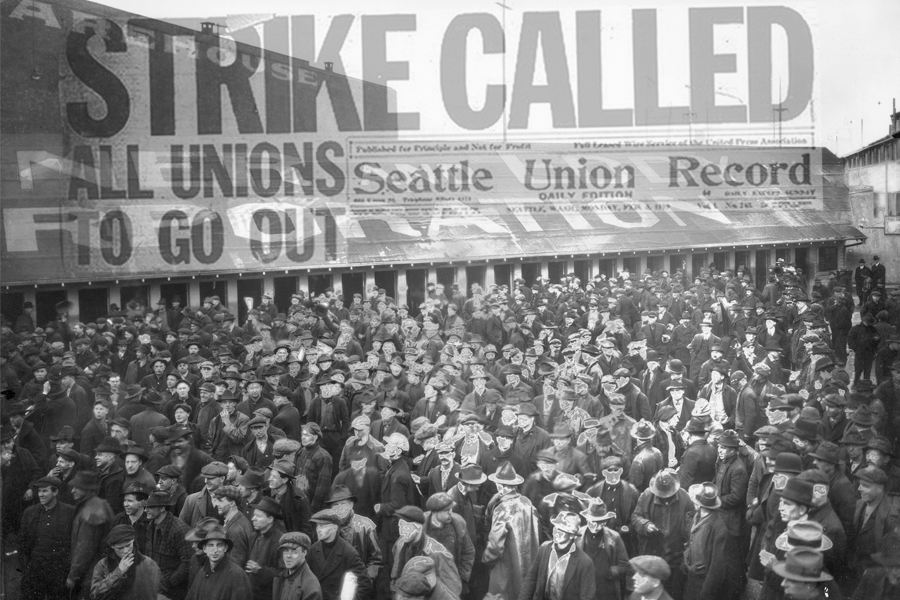Where Did All the Utopians Go?

On Friday, I wrapped up the book American Prometheus, the source material for the Christopher Nolan film Oppenheimer, that is expected to dominate the upcoming Academy Awards. There are better people than me to offer literary and film criticism, so I’ll spare you my takes on the book and movie. But as the book does, I think it’s worth zeroing in on Oppenheimer’s politics, or more precisely, how his politics are reflective of his time—while condemnatory of ours.
J. Robert Oppenheimer (“J” for Julius) was the scientific director of the Manhattan Project, the covert effort by the US government to construct the first atomic bomb at the Los Alamos site in New Mexico. While much of the country was wedded to neutrality, Oppenheimer was deeply opposed to the fascist takeovers of Spain and his ancestral homeland of Germany (his father was born in Hesse-Nassau in modern-day Germany). As such, he personally and financially supported left-wing anti-fascist efforts. Reportedly, Oppenheimer donated in the neighborhood of $1,000 per year ($22,500-ish adjusted for inflation), to the fight in Spain.
As an aside, if you haven’t read about the Abraham Lincoln Brigades, American volunteers who went to Spain to fight against Franco’s forces, you should. This is also the time period of Orwell’s Homage to Catalonia, not that I'm trying to give you homework. Interestingly, this week I read a piece about Black Americans who volunteered to help Ethiopia resist invasion from fascist Italy in 1935. Thousands volunteered but were blocked from leaving the country by the US government. But the ones that made it over had a massive impact, including John Robinson, who became the commander of the Ethiopian Air Force and went on to found Ethiopian Airlines.

That admittedly was a long aside.
In his time, and after his death Oppenheimer was dogged by Hoover’s FBI and other federal law enforcement for being a member of the Communist Party. He wasn’t. Honestly, if he was it shouldn’t have mattered but that's for a different newsletter.
In the inter-war period, communism and fascism were prominent competing utopian ideologies. However, you and I live in a time devoid of utopian visions and visionaries. The most recent “radical” movement of our time was essentially people saying “hey, maybe the police shouldn’t kill one thousand people a year” and they got shouted down comprehensively.
It’s worth noting, that when I refer to a “utopian vision,” I'm highlighting the aspiration to drastically reshape society, rather than advocating for incremental or reformist approaches. Therefore, I'm not suggesting that fascist endeavors aimed to establish utopias—after all, what Black person in their right mind would support the rise of nationalist European ethno-states? Instead, I'm emphasizing their aims to fundamentally transform their society.
I guess the core of my question is why is there such a dearth of people and movements imagining meaningful transformation? Why are we stuck in the valley of neoliberal consensus?
Reagan won, so government is bad.
Milton Freidman won, so markets are virtuous.
We all lost.
Definitionally conservatism is the rejection of new ideas. William F. Buckley’s most famous quote is “A conservative is a fellow who is standing athwart history yelling stop!” At its core political conservatism (read: not Trumpism) is traditionalism—people who like the world as it was and how it is. They defend the status quo and they guard traditional institutions. The birth of the movement, after all, is a critique of the French Revolution.
At this point, the conservative idea of the infallibility of markets is so entrenched in our collective consciousness that mild criticism of market capitalism is viewed as radical praxis. The only people who seem interested in really transforming our society today are the tech bros and their vision is deeply wack.

BBC filmmaker Adam Curtis took a swing at answering the question about the death of utopian thinking in his documentary series: The Century of the Self. He mainly cited the rise of individualism and consumerism. While I nod at both, I think that answer leaves a lot on the table. This is where you come in dear reader: What do you reckon killed utopian thinking? Why have our politics become so narrow and devoid of possibilities? I genuinely want to hear your takes (and typos).
In the last century, labor figures like Eugene Debs and Black radicals like Stokley Carmichael offered us off-ramps to other possible futures. Now, we’re stuck with a binary choice between a pro-business party, full of warmongers and the Republicans.
Notes and Bits
In last week’s newsletter, I wrote about my thoughts about Black male mortality. I got some truly wonderful emails in response, including a reminder that I’m colonoscopy years old. Another reader chimed in to advise that I ask my doctor about a CT scan, given my family history. I am following up on both. Shouts to the folks at Cleveland Clinic Abu Dhabi and thanks for caring, y’all.
Next, a few weeks back we talked about real and potential AI deep fake scandals in schools. 404 reported this week about several such occurrences including one in Issaquah, Washington, where it appears the incident was not handled very well. We're going to see more of these and if you work in a school it's worth contemplating how you'll respond.
Lastly, for a host of reasons, we recently transitioned away from using Spotify Premium to a French service called Deezer. It has all the same features and does all the same things as Spotify but A. it costs less and B. I’ve felt some-type-of-way about Spotify for a minute. I used a service, TuneMyMusic, to import my playlists from one to the other. One of the playlists is my hip-hop Top 5 of All Time which technically has 95 tracks. If you want to head bob this week to everything from mumble rap to 1980s Public Enemy, I got you: 6h:32m minutes, no skips.